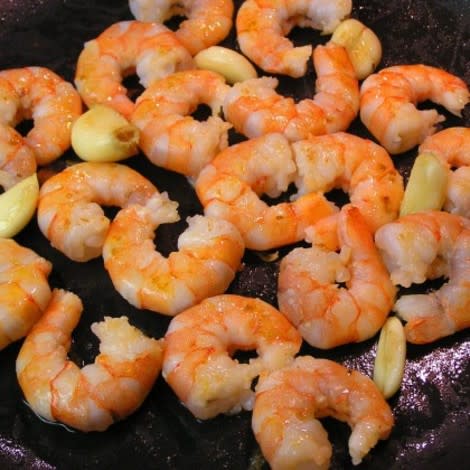Good News for Pregnant Seafood Lovers!

If your pregnancy has you craving seafood, get ready to smile: A new study has found that fish consumption contributes to just 7 percent of mercury levels in the human body.
Fears of mercury exposure and resulting birth defects have long prompted experts to advise expectant mothers to limit how much and what kinds of fish they eat.
"We were pleasantly surprised to find that fish contributes such a small amount...to blood mercury levels. We have previously found that eating fish during pregnancy has many health benefits for both mother and child," said lead researcher Professor Jean Golding of the University of Bristol in the U.K. in a statement released by the university. "We hope many more women will now consider eating more fish during pregnancy."
Researchers reached their conclusions after studying blood test results and diet information for nearly 4,500 pregnant women. In addition to the fish finding, they determined that overall, the foods and drinks women consumed accounted for only 17 percent of the total mercury levels in their bodies.
So where's the rest of the mercury coming from?
In their report on the study, published in the journal Environmental Health Perspectives, researchers cited a host of non-food related sources including dental amalgam fillings, beauty products, cigarettes, alcohol, illegal drugs and medications as well as mercury in the water and the air.
Related: Green is gross! And 5 more toddler food rules!
In a statement to BabyZone, Dr. Jeanne Conry, the president of The American Congress of Obstetricians and Gynecologists, said the study "expands our understanding of health risks and environmental exposures."
"We appreciate the analysis that there are many sources of environmental exposures to mercury, which reinforces our assessment that there should be much better control on the release of potentially harmful chemicals into the environment," Conry said.
So if the environment and non-food products are largely to blame, does that mean pregnant women are now free to feast on shark and other high-mercury fish?
Not exactly.
For now, obstetricians are still staying faithful to recommendations that pregnant women avoid fish known to be high in mercury.
"ACOG believes that fish consumption provides a healthy dietary source of protein and omega-3 fatty acids, but the large body of research cautions us about the total weekly consumption of certain species found to have higher levels of mercury," Conry said.
ACOG, the USDA and others recommend that women eat between 8 to 12 ounces of fish or shellfish-particularly low mercury fish such as shrimp, salmon, catfish and pollock-per week while pregnant or breastfeeding.
Dr. Laura Jana, a pediatrician, said she hopes the study will help fight the misperception that pregnant women shouldn't eat fish at all.
"The common misperception to avoid or limit seafood consumption persists, especially amongst pregnant women who stand to benefit from consuming seafood the most," she told BabyZone. "This common misperception is often compounded by inaccurate advice from health care providers, media and from other sources that is simply not consistent with the current evidence."
Last month, researchers from Nationwide Children's Hospital in Columbus, Ohio highlighted another population that is apparently falling short on fish consumption: children under 5.
They found that nearly one-half of toddlers don't eat any fish at all. In a statement, researchers called the results "troubling" and said fish should be part of a balanced diet.
- By by Alice Gomstyn
For 10 good-for-you pregnancy snacks, visit BabyZone!
MORE ON BABYZONE
10 easy tricks for getting kids to eat their food (no, really!)
7 unusual ways to get pregnant FASTER
Not in the mood? 5 easy ways to get your sexy back!

